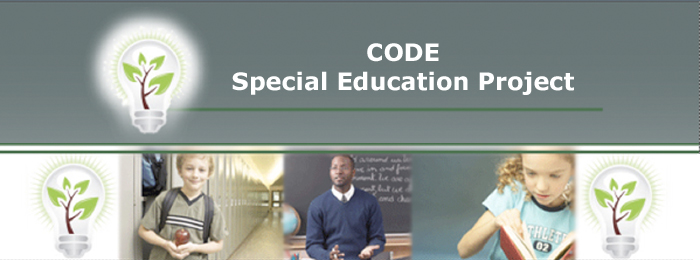

If you require more information or would like to comment on any aspect
of these webinars please contact:
Michelle Forge
or
John Fauteux
Where possible resources are provided in
PDF format.
A free download of
Adobe
Reader
is available.
Introduction
We invite you to review the descriptions of previous webinars. When demand warrants we will rebroadcast pervious webinars.
![]()
"Systems Thinking"
Webinar 1
The first Webinar focuses on Systems Thinking as it relates to reculturing special education programs and services.
The Webinar will build upon promising practices developed at the school,
district and provincial levels.
The webinars are open to special education leaders. Systems Thinking
Webinarwillhighlight Special Education field's best practices, identifies
current trends and offers avenues for future learning.
![]()
"Recruiting:
R/evolution in Linking Knowledge and Practice"
Webinar 2
There is a curse that goes: "May you live in interesting times". We now live in interesting times. Rather than it being a curse, we have opportunities that stretch beyond what many of us imagined only four years ago. Living through a revolution can be both exciting and frightening. This webinar addresses the changes in leadership and practice needed to ensure that the children in our care benefit from what we have learned after three years of CODE projects and other aligned change initiatives in Ontario.
We will explore concepts related to sharing knowledge effectively
and of engaging students, parents, teachers, principals, administration,
the Ministry of Education, and partners in meaningful, productive ways.
We will explore the growing and changing role of technology in this
complex equation. We will also address barriers and challenges to be
overcome or redefined. Next steps will lead to an introduction of the
concept of Communities of Practice - an introduction to the next webinar.
![]()
"Towards an Education for
All Community of Practice"
Webinar 3
We all live in communities. We all belong to communities: ethnic, religious, geographic, historical. So what is all the talk about "communities of practice"?
Webinar 3 will build on the discussions about systems thinking and reculturing, to take us to how to give our data and information a social life. Raw data and uncontextualized information is really for machines and computers. Knowledge is when we give this data a social life. One of the best known and growing methods of doing this is through a "community of practice".
Join us as we discuss how to organize, develop, and grow a community that provides social learning and shared sociocultural practices, which in the end, will allow us to gain more value from all the data collected, information gathered, and knowledge stored in our people, schools, and supporting structures.
Une discussion des systèmes
de pensée et de reculturation
Webémission 3 - en français
Les leaders dans les écoles de langue française en Ontario sont parfois semblables, mais à la fois différents de leurs collègues anglophones. Le rapport « L'Éducation pour tous » et les projets d'éducation de l'enfance en difficulté du CODE ont démontré qu'il y a des similitudes dans toutes les écoles - indépendamment de la langue - mais également des particularités qui sont uniques aux francophones de l'Ontario. Cette webémission sera une discussion ouverte avec des leaders en enfance en difficulté au sujet des changements qui se produisent quand nous nous engageons dans une "réflexion " de systèmes; et de "reculturation "- selon la perspective francophone de l'Ontario. Comment tous les acteurs des divers échelons du système ont-ils besoin "d'être " en enfance en difficulté? Comment le partage doit-il prendre un plus grand rôle qu'auparavant? Comment les besoins des francophones en Ontario peuvent-ils être mieux satisfaits? Quand la technologie peut-elle être une réponse et quand est-elle un obstacle? Joignez-vous à une conversation fascinante sur certaines grandes idées affectant votre pratique.
![]()